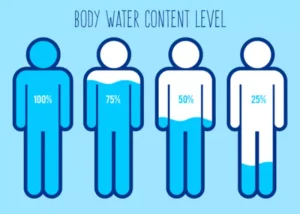Sober living
What Are the 12 Principles Of Alcoholics Anonymous?

This is part of our ongoing commitment to ensure FHE Health is trusted as a leader in mental health and addiction care. With the availability of the Big Book, AA grew and developed exponentially. The 12 Traditions of AA were adapted in 1950 to provide additional structure and guidance, in addition to clarity regarding AA’s primary purpose, and to preserve the fellowship’s unity during a time of rapid growth.

Hazard’s search for treatment, spiritual conversion, & involvement with the Oxford Group
Instead, members are free to interpret the concept of a higher power on their own, whether that be God, nature, the universe, or the group’s collective strength. AA provides structured peer support and behavioral reinforcement, significantly improving long-term abstinence rates among participants. A.A.’s primary purpose is to help alcoholics to achieve sobriety. Although AA seems like the all-answer when it comes to those starting their journey toward sober living, it’s important to note that addiction is highly complex, and the path may not always be easy or straightforward. Individuals need individualized care and treatment plans suited to their unique needs should they struggle with dependency. The 12 Steps are the foundation of Alcoholics Anonymous, providing members with guidance as they strive for sobriety.
The Virtues Inherent to Humility and the 12 Steps

Their purpose is to let members share their challenges, pain, and successes. 12-step meetings are not classes or group therapy sessions. In any given meeting there are people who are both days and decades into recovery. These programs are based on behavioral, cognitive, and spiritual principles aa alcoholic definition and practices through which people can learn how to stay clean and sober one day at a time. A sponsor is an AA member who serves as a mentor of sorts to a newcomer in the program.
What They Don’t Tell You About Recovery
You can practice integrity in your recovery by talking through everything that you feel guilty about and your mistakes. Step 5 is about taking the moral inventory made in step 4 and admitting first to God, next to yourself, and last to another person. The way to carry this principle forward is to always remind yourself that you’re at the mercy of a higher power and that you don’t come first. In Steps 1 and 2, AA instructs members to strip themselves bare of ego and power. Step 3 involves putting yourself at the mercy of this higher power and moving forward for “Him” — or whatever your higher power may be — over the selfishness of addiction.
- Out walked genuine compassion, service and self-sacrifice.
- At any AA meeting, alcoholics share from their own experience about what their lives were like when they were drinking, what actions they have taken to recover from active alcoholism, and what their lives are like today.
- AA’s strong emphasis on spirituality may be problematic for some people, and it’s one of the reasons many may have trouble following the 12 Steps.
Disease model
- By integrating technology into recovery, the Sobriety Calculator enhances the existing support system provided by the AA Meetings Directory, making the path to sobriety more interactive and rewarding.
- It underscores the pivotal role of shared experiences and mutual support in overcoming the hurdles of alcoholism, carving out a route marked by solidarity, acceptance, and collective triumph.
- Sadly, these defensive strategies often prevent connection and true intimacy with others, and result in a painful isolation and a feeling that life lacks meaning.
- I’m not sure about you, but I had no idea who I was with a belly full of booze and drugs.
Concerns have been raised about its overall success rate, the perceived religious nature of its approach, and allegations of cult-like elements. This doesn’t mean it’s “better” or “worse.” It’s a different perspective that may be useful for some people struggling with alcoholism. You can attend meetings and choose when, or if, you’re ready to share your experiences. Be of service by sharing your experience, strength and hope with fellow alcoholics, new and Sober living home old, around the world.

- A person’s alcoholism demands their honest admission that they have an incapability to handle their own drinking problem.
- This pamphlet describes who A.A.s are and what we have learned about alcoholism.
- These alternative treatments provide scientifically-backed, individualized recovery options that address both the physical and psychological aspects of alcohol addiction.
- Using either alcohol or another mind-altering drug would be a slip or relapse.
- If one of our articles is marked with a ‘reviewed for accuracy and expertise’ badge, it indicates that one or more members of our team of doctors and clinicians have reviewed the article further to ensure accuracy.
- While it acknowledges spirituality, it allows members to define their higher power.
This helps members gain insight into their own feelings, perspectives, and behaviors surrounding their addiction. A humble person accurately acknowledges both their strengths and limitations. These people have the capacity to be honest and without pretense in relation to themselves. They are “right-sized” and without false pride, arrogance, or importantly, low self-esteem. They are modest and without “ego”, they are authentic and real, and can admit to their vulnerability.

